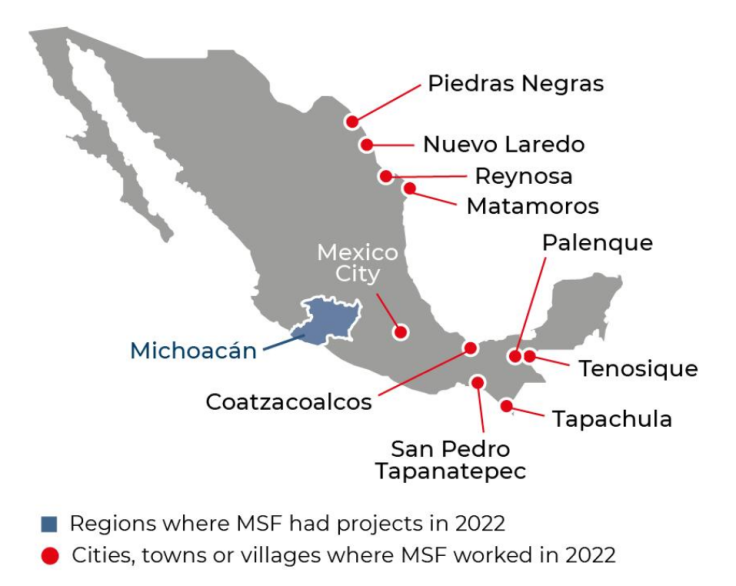
SEATTLE - Doctors Without Borders (Médecins Sans Frontières, MSF) announced it has resumed its work in support of Tucson-based nonprofit groups that are bringing humanitarian aid to migrants and asylum seekers crossing the U.S.-Mexico border near the Sonora Desert.
Back in April, MSF partnered with Humane Borders, Samaritans, No More Deaths, along with other local nonprofit groups to assess the medical humanitarian needs of migrants and asylum seekers crossing the southern U.S. border into Arizona. And this month they launched the initiative to continue with the support.
"We determined that migrants along this route are extremely vulnerable and in dire need of additional support," said Adriana Palomares, MSF head of mission in Mexico and Central America. "We observed pregnant women, children as young as eight months old, and people who need access to medication for diabetes, hypertension, and asthma trying to walk this treacherous route across the desert."
The increased effort comes in response to the growing amount of deaths reported along the route. According to Humane Border's data on deceased migrants, more than 4,100 sets of remains have been discovered in Southern Arizona since 1990, including 95 reported so far this year.
Labelled as a "humanitarian medical crisis" by Dr. Belen Ramirez, a project coordinator with Doctors Without Borders, migrants and asylum seekers who cross the border are facing serious health risks and little access to medical care. "If they don't have shelter, if they don't have water, if they don't have a timely transport to the area where they're being processed, it could be fatal," Ramirez said.
Thousands of people take the arid route into the Sonoran Desert on foot. Freezing nighttime temperatures in winter and blazing hot and rain in the summer can put people at high risk of death from various factors, including from dehydration, physical exertion, and exposure.
For about six weeks, MSF will continue to help local groups prepare for a potential increase in migration flows across the Arizona border. According to the nonprofit, they will identify current needs and will boost supplies at sanitation and hydration points, as well as offering training on basic wilderness first aid.
Additionally, the team is assisting mental health providers with training in psychological first aid in addition to supporting social work, health promotion, and addressing issues related to sexual violence.
Doctors Without Borders already counts with multiple mobile clinics in key points along the U.S,-Mexico border. In 2022, MSF had 11 mobile clinics delivering medical and mental health services to migrants and asylum seekers all over Mexico.

"Our teams see trapped, vulnerable people in inhumane conditions at the US-Mexico border who embark on this route through the desert out of sheer desperation," said Ramirez. "The US has a responsibility to adequately resource processing at the US-Mexico border to allow people to seek asylum without risking their lives."
© 2025 Latin Times. All rights reserved. Do not reproduce without permission.






